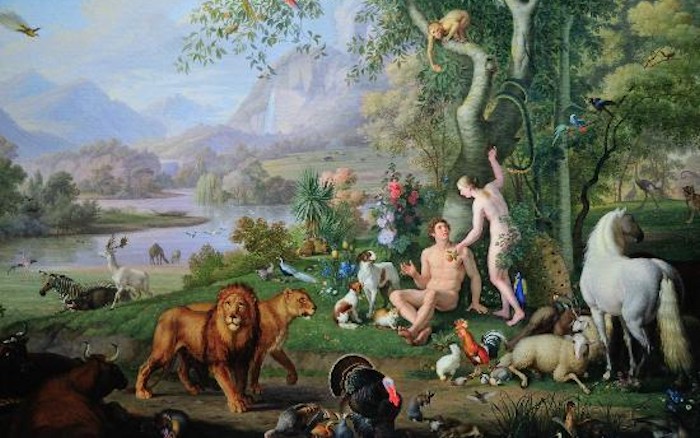Session 2
Week 4
Genesis 2:8-15
8 The Lord God planted a garden toward the east, in Eden; and there He placed the man whom He had formed. 9 Out of the ground the Lord God caused to grow every tree that is pleasing to the sight and good for food; the tree of life also in the midst of the garden, and the tree of the knowledge of good and evil.
עֵדֶן (spiritual perfection)
70+4+50=16
1+6=7
It seems here that God only planted the garden after He created man. The garden in Eden was the perfect provision of abundant food for man. The garden was probably a reflection of heavenly things on earth. I’ve heard it taught that man’s job was to extend the rule and reign of God to the entire earth, by turning the rest of the earth into a fruitful garden, demonstrating the Kingdom of Heaven on earth.
It was man’s fall to the temptation of the tree of the knowledge of good and evil that thwarted these plans.
What are your thoughts about that theory?
10 Now a river flowed out of Eden to water the garden; and from there it divided and became four rivers. 11 The name of the first is Pishon; it flows around the whole land of Havilah, where there is gold. 12 The gold of that land is good; the bdellium and the onyx stone are there. 13 The name of the second river is Gihon; it flows around the whole land of Cush. 14 The name of the third river is Tigris; it flows east of Assyria. And the fourth river is the Euphrates.
People say that the geography of the rivers gives us a clue as to where on earth the garden of Eden was located, but some say the flood totally changed the typography of the earth.
Who knows, it may have even been found in another dimension than the one we currently live in here on earth…
Let’s look at the meanings of some of the names mentioned, as names in the Bible give us greater understanding of what God is communicating.
The first river – a picture of the sacrificial system that is the foundation of the law
פִּישׁוֹן Pishon – increase; overflowing – changing; extension of the mouth
חֲוִילָה Havilah that suffers pain; that brings forth
I love the fact that the Word says here that there’s gold in Havilah. Yes, gold comes through the pain and suffering in our lives. We saw it in Messiah’s life. The resurrection only came after and through the crucifixion. It’s the same in our lives. That’s why the Apostle Paul encourages us in James 1:2-4
Consider it all joy, my brethren, when you encounter various trials,3 knowing that the testing of your faith produces endurance. 4 And let endurance have its perfect result, so that you may be perfect and complete, lacking in nothing.
Gold has also come through the foundation of the sacrificial system that God ordained through the Israelites and fulfilled through Messiah’s sacrifice.
When have you seen God turn something that was painful in your life to gold?
The name of the next river gives us a clue into how God turns our pain into gold – and it’s a picture of Messiah’s sacrifice.
גִּיחוֹן Gihon valley of grace
כּוּשׁ Cush the name of a son of Ham, apparently the eldest, and of a territory or territories occupied by his descendants. The Cushites appear to have spread along tracts extending from the higher Nile to the Euphrates and Tigris. History affords many traces of this relation of Babylonia, Arabia and Ethiopia.
The third river – a picture of the cross – the pivotal judgment that came swiftly at the instruction (voice) of God
חִדֶּקֶל Hidekel active/rapid; sharp voice, sound (Tigris?)
אַשּׁוּר Ashur (Assyria) who is happy; or walks; or looks
The fourth river
פְרָת Perat – break forth/rushing; that makes fruitful (Euphrates)
Putting together the meanings of the four rivers that flow out of Eden to water the earth and their surrounding areas we might get a sentence like the following:
An increase of overflowing suffering and pain flowing into a valley of grace actively looses a rapid sound that causes a breakthrough of fruitfulness that makes those who look upon it and walk in its ways fruitful and happy.
Sounds like the cross of Christ to me.
How does looking at the meaning of the names of the rivers and areas inspire you?
What does it teach you about God?
15 Then the Lord God took the man and put him into the garden of Eden to cultivate it and keep it.
As ‘born-again’ Kingdom Ambassadors on earth, how do you think God’s instruction to Adam to “cultivate it and keep it” applies to us today?

OTHER RESOURCES OF INTEREST
